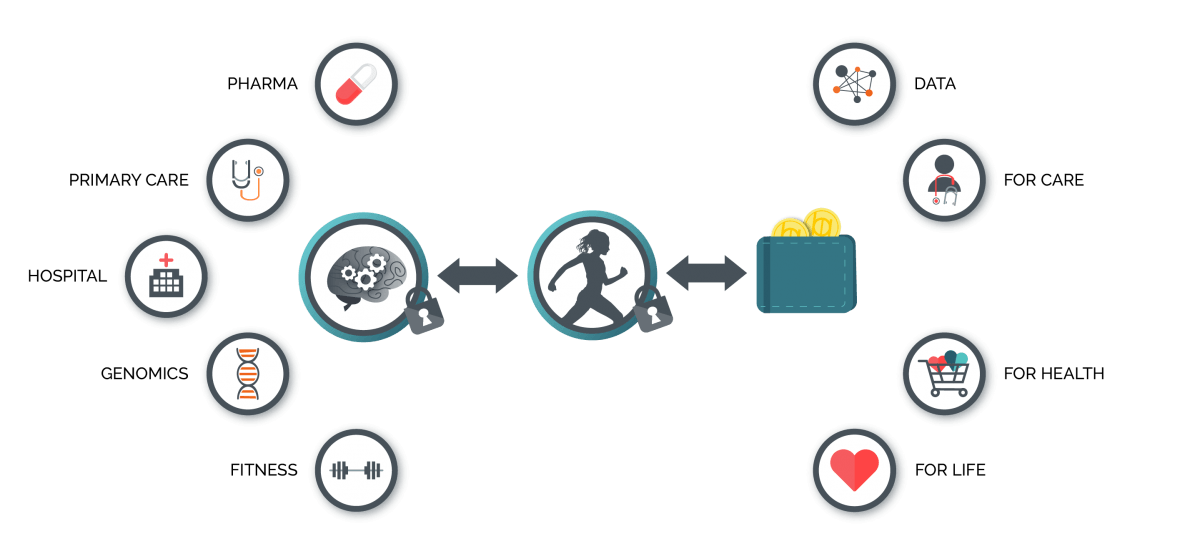Identity thefts, spamming and financial data crimes, the patient’s data can be misused for many reasons as patients don’t have control over their data.
2017 Ponemon Cost of Data Breach Study says that the cost of data breaches for healthcare organizations is estimated to be $380 per record.
IBM’s Institute for Business Value Blockchain interviewed 200 healthcare executives and found 16% of them are willing to deploy a commercial blockchain solution.
Data generation
To integrate blockchain in healthcare, first, we need to understand the scope of data and where and how it is being generated.
At every stage of medical treatment, whether it is a consultation, diagnosis, or surgery, healthcare companies generate sensitive and crucial medical data.
Electronic health records(EHR) contain exploitable information like name, address, place where you work, prescribed medicines, number of doctor visits and payment methods. A Medical record also contains sensitive protected health information like HIV diagnoses, cancer diagnoses, or psychological conditions.
Saving data on blockchain doesn’t mean no-compliance. In fact, blockchain will make compliance enforcement more seamless and transparent. HIPAA (Health Insurance Portability and Accountability Act) Compliance ensures the protection of patient’ data. Healthcare vendor that deals with patient’s protected health information should follow HIPAA’s security measures.
HIPAA’s privacy rule allows all the involved members to access and disclose only de-identified data. It is essential that the compliance check is maintained before the health records get saved on the blockchain.
Medical data categorized in multiple formats like administrative claim record, clinical registries, biometric data, patient-reported data, or medical imaging should be stored in a structured way.
Organized data enables all healthcare providers to access data efficiently. Even more on https://www.leewayhertz.com/healthcare-blockchain-how-medical-records-secured-blockchain/, Patients can share their private key with health organizations: Blockchain healthcare solution can never reveal the patient’s identifiable information until they provide their private key. Patients can share the private key with the health organizations if required. Data would always remain non-identifiable to healthcare providers without the secret key. It is similar to how cryptocurrencies are stored on the blockchain, where the owner with the private key can only access it.
A blockchain can either be a public or a private blockchain. Since an user identity will not be visible in this solution, a public blockchain could also be used.
Once the data is stored, it can be consumed by different healthcare blockchain vendors using smart contracts.
Similarly, physicians in the healthcare centers could access relevant information such as the patient’s historical health records, age, and diagnostic reports.
Patients would have ownership of the data, i.e., they can decide what information to be shared with which entity using smart contracts.
Data Mining and AI in Healthcare Blockchain
For example, if a research company wants to get the analytics for HIV disease, smart contracts would enable them to access details like HIV type, most-affected city or country, age group, and gender while hiding the personal information of patients.
Here’s what benefits could Blockchain bring to the Healthcare Industry
Control over the data:
Anyone willing to access the health records would require the patient’s public key. Patients could seamlessly control who should access what data.
Since the data is saved in encrypted form, it remains unreadable to the hackers.
